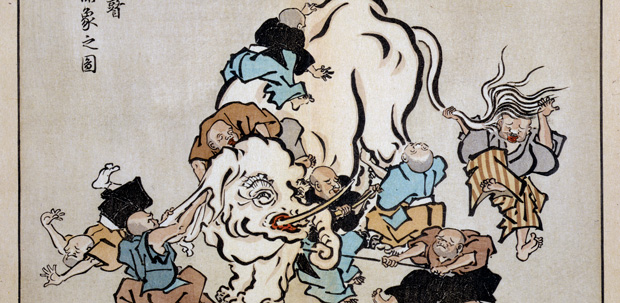by Ian de Stains OBE
Enlightened politicians and those of other persuasions with equally progressive views in Japan have of late spoken about giving the vote in local government elections to foreigners who hold permanent resident status. They argue that doing so might help drag Japan out of the current parlous state in which it finds itself, politically, economically and sociologically. They point to other countries where such suffrage has had a markedly positive impact. As a permanent resident who’s lived here for almost 35 years, I am, unsurprisingly, in favor of such a move. I care about Japan; it is my adopted country. I care about the ward in which I live, and I would like to be able to make a greater contribution to it, to give back to this community that has for so long made me feel so welcome.
It should come as no surprise, of course, that the majority of Japan’s politicians find this idea heretical. They are where they are largely because they are incapable of thinking outside the box. The prospect of anything different scares them to death and — whereas in some other countries such ideas would stimulate creativity on the part of those looking to make an impression — has the establishment in Japan yelping in protest. One Diet member pointed out that this was a bad idea since the vote should only to be given to those who pay taxes.
Excuse me! I’d be more than happy to show the member in question my tax returns for the last 30-plus years. It would be interesting, apart from anything else, to see how they compare with his. Others have made only slightly less ludicrous claims; for example that it wouldn’t work because gaijin don’t speak Japanese. Please! What world do these people live in? In any event, if this was a genuine issue — which it is not — you simply set a language test before any permanent resident is given the right to vote.
But the point is, these lame excuses are offered up not necessarily because anyone really believes they matter. They are a way of not mentioning the elephant in the polling booth. Which is, of course, the large number of Special Permanent Residents — principally of Korean origin — and the fear that allowing them to vote, even in local elections, could somehow influence Japan’s position on highly sensitive territorial and other issues with long histories that the majority of Japanese prefer not to think about. Indeed, the educational system here being what it is, they have been taught not to think about them. There may be some truth in these claims and some discomfort in facing them. But isn’t that something that speaks to the heart of what a true democracy is?
Ian de Stains is the executive director of the British Chamber of Commerce in Japan. The views expressed in this column are strictly his own and are not necessarily endorsed by or shared by the Chamber.
Photo courtesy of Library of Congress









